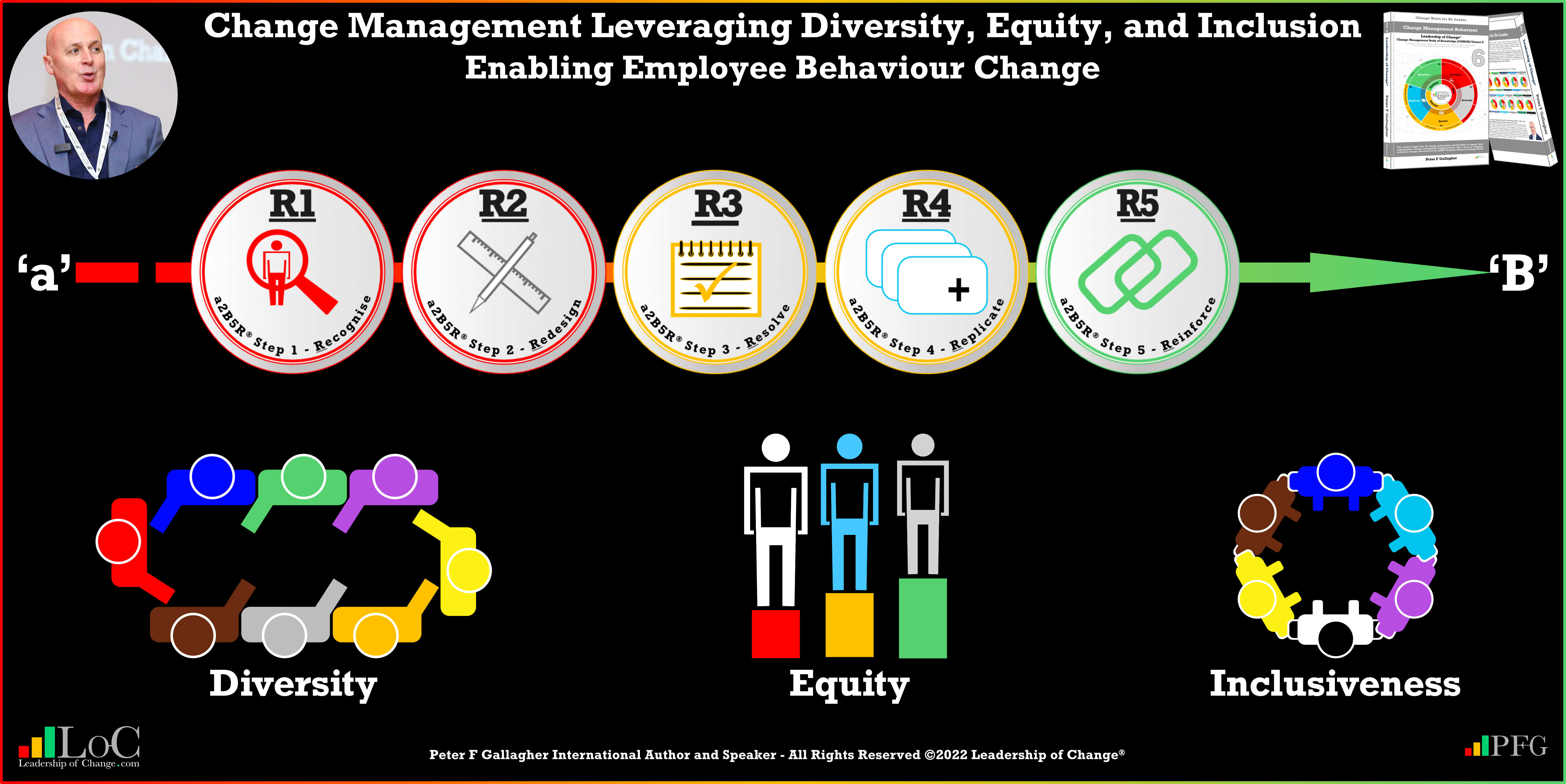May30

"Who we are born as is an accident of time and we are all different, but the important elements of our journey in life are diversity, equity, and inclusiveness"
DE&I must always be strategic and merit-based—its purpose is to enhance organisational capability, not to create entitlement. When implemented through a merit-driven strategy, DE&I strengthens performance by ensuring that opportunities and advancement are earned, fair, and aligned with organisational goals. John Hume, winner of the Noble Peace prize said, “Difference is the essence of humanity. Difference is an accident of birth, and it should therefore never be the source of hatred or conflict. Therein lies a most fundamental principle of peace: respect for diversity.” While John was speaking during a time of deep civil trouble, he recognised the importance of people’s differences. Without diversity, equity, and inclusion (DE&I) in the workplace, there may not be a sense of belonging, work life can be very challenging and lead to stress, dissonance, and higher staff attrition rates. A strategic, merit-based approach ensures that diversity, equity, and inclusion are applied consistently and transparently, with decisions grounded in competence, contribution, and organisational need. This reinforces trust and prevents DE&I from being misinterpreted as favouritism or social engineering.
Diversity: The range of people in your workforce, it refers to anything that sets one individual apart from another. This means having employees with different nationalities, cultures, socioeconomic status, ages, religions, sex and sexual orientation, political perspective, people with disabilities, etc.
Equity: Providing support based on an employee’s specific needs, promoting justice, impartiality, and fairness, as well as reducing disparity.
Inclusion: An inclusive workplace means that employees feel valued at work, they can participate and contribute value. An inclusive work environment should lower the risk of negative behaviour, bullying, harassment and discrimination. More importantly, individuals or groups do not feel excluded based on their identity and will be given the same resources or opportunities.
Importantly, DE&I cannot deliver positive outcomes unless it is embedded in strategy and grounded in merit. Organisations that treat DE&I as a box-ticking exercise or as a mechanism for non-merit-based advancement undermine both performance and trust. As leaders of change we must put people first and our objective is to provide employees with a positive change transition experience. Not only does a DE&I organisation drive better business results, but they are also more innovative. They help attract better and more talented employees, improving brand reputation. A DE&I environment can be a great foundation for successful change implementation.
Diversity Helps Change: Diverse views, perspectives, open and honest discussion, where everyone can contribute, leads to better change solutions and acceptance.
Equity Helps Change: Shaping and implementing a change that has equity considerations, that does not disadvantage any individual or group, will make it more palatable to the employees.
Inclusion Helps Change: Employees will feel engaged and more willing to become involved in the change design and implementation. They will feel that they are able to ask questions that might otherwise develop as resistance, questions that provide invaluable feedback and even improve the change approach.
Creating and ensuring there is a DE&I working environment will become something organisations and leaders cannot ignore. Millennials, and those that were part of the great resignation, want purpose and will demand it. A DE&I work environment is a lever to enable successful change management, with less time wasted on resistance, fewer cases of employee stress or associated mental health problems, higher adoption rates, high investment returns and the improvement of change and transformation success statistics.
"Diversity, equity, and inclusiveness (DE&I) is a human right. It should not exclude any group or individual and it should definitely not be used as a weapon to dishonestly promote the objectives of any single party to the detriment of others. DE&I must remain strategic, fair, and merit-based—applied to strengthen organisational performance, not distort it"
This blog is based on my book: Change Management Handbook - Leadership of Change® Volume 6
Blog Source: Change Management Leveraging Diversity, Equity, and Inclusion (DE&I) (peterfgallagher.com)
Peter consults, speaks, and writes on the Leadership of Change®. For further reading please visit our websites: https://www.a2b.consulting https://www.peterfgallagher.com Amazon.com: Peter F Gallagher: Books, Biography, Blog, Audiobooks, Kindle
Leadership of Change® Body of Knowledge Volumes: Change Management Body of Knowledge (CMBoK) Volumes 1, 2, 3, 4, 5, 6, 7, A, B, C, D & E available on both Amazon and Google Play:
~ Leadership of Change® Volume 1 - Change Management Fables
~ Leadership of Change® Volume 2 - Change Management Pocket Guide
~ Leadership of Change® Volume 3 - Change Management Handbook
~ Leadership of Change® Volume 4 - Change Management Leadership
~ Leadership of Change® Volume 5 - Change Management Adoption
~ Leadership of Change® Volume 6 - Change Management Behaviour
~ Leadership of Change® Volume 7 - Change Management Sponsorship
~ Leadership of Change® Volume A - Change Management Gamification - Leadership
~ Leadership of Change® Volume B - Change Management Gamification - Adoption
Coming soon:
~ Leadership of Change® Volume C - Change Management Gamification - Behaviour
~ Leadership of Change® Volume D - Change Management Gamification - Sponsorship
~ Leadership of Change® Volume E - Change Management Gamification - Leadership Teams
Keywords: Leadership, Change Management, Business Strategy
 Lateral Moves: The Most Overlooked Succession Strategy in Companies
Lateral Moves: The Most Overlooked Succession Strategy in Companies The Asset Play: Timing, Structure & Global Arbitrage
The Asset Play: Timing, Structure & Global Arbitrage  The Orchestra Needs a Conductor: Why Multi-Model Agents Require H2E Governance
The Orchestra Needs a Conductor: Why Multi-Model Agents Require H2E Governance The Role of Memory in Modern-day Business
The Role of Memory in Modern-day Business The Architectures of Permanence: A Comparative Analysis of the "Big Three" AI Strategies (2026)
The Architectures of Permanence: A Comparative Analysis of the "Big Three" AI Strategies (2026)